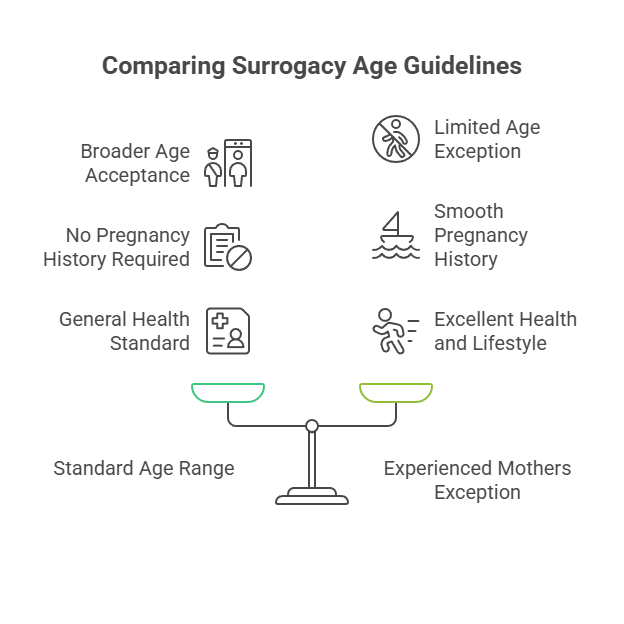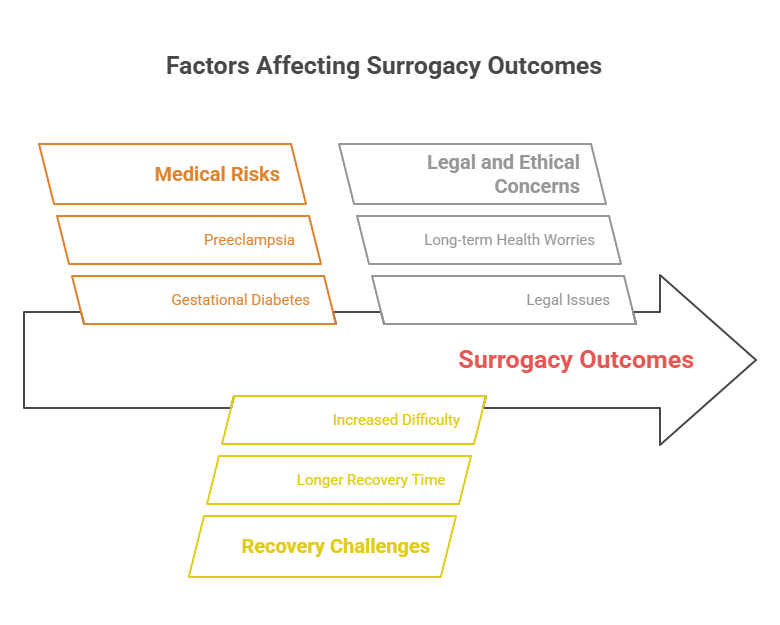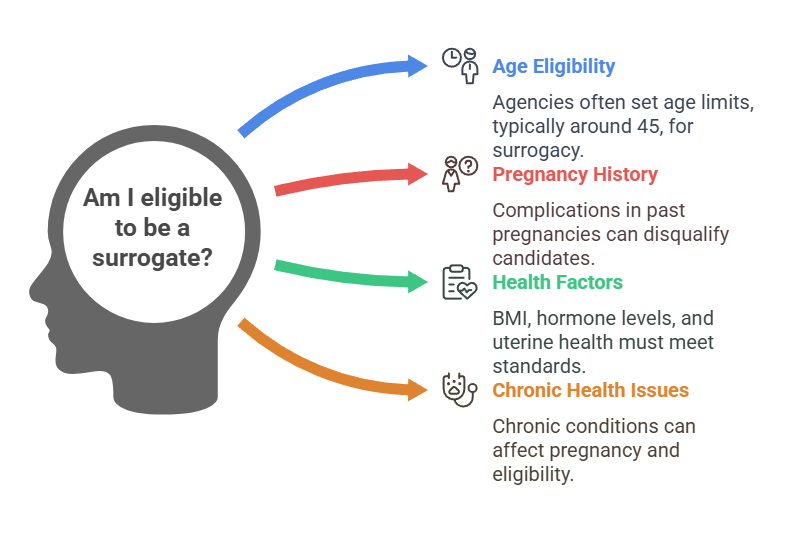Understanding Age Limits, Health Considerations, and Why Age Matters in Surrogacy
Short answer: Most surrogacy agencies and fertility clinics accept surrogate mothers between the ages of 21 and 40, with some allowing women up to 45 if they meet strict health and pregnancy history criteria. However, it’s rare for women over 40 to be selected by intended parents, even if they are medically cleared. Age alone doesn’t disqualify someone — but it significantly affects the chances of being chosen and having a safe, successful pregnancy.
I. Introduction
Becoming a surrogate is a powerful and generous decision — but it’s not for everyone at every stage of life. One of the most common questions women ask when considering surrogacy is:
“Am I too old to be a surrogate?”
In this article, we’ll explore how age impacts surrogacy eligibility, why certain limits exist, and what alternatives are available for older women who still want to be part of the journey.
More: Can an Older Woman Be a Surrogate?
II. General Age Guidelines for Surrogacy
Most reputable surrogacy agencies and fertility clinics set the age range for gestational surrogates between 21 and 40 years old. This range reflects what medical professionals consider to be the safest reproductive years.
In some cases, agencies may accept experienced mothers up to 45 years old, provided they have:
- A history of smooth, full-term pregnancies
- A healthy lifestyle and BMI(BMI Calculator)
- Excellent overall health confirmed by a medical screening
But these exceptions are rare and evaluated case by case.
More: What Disqualifies You from Being a Surrogate? Key Requirements and Exclusions

III. Why Age Matters in Surrogacy
Age isn’t just a number in surrogacy — it’s directly tied to physical health and pregnancy outcomes.
- Medical Risks Increase With Age:
Women over 40 are more likely to experience complications such as gestational diabetes, preeclampsia, or premature delivery. - Recovery Becomes Harder:
Postpartum recovery tends to be longer and more difficult in your 40s than in your 20s or 30s. - Legal and Ethical Considerations:
Some intended parents worry about the long-term health of the surrogate or future legal issues if something goes wrong. Age can affect these perceptions.

IV. Experience vs. Age: Why Some Older Women Are Still Accepted
While age is a major factor, it’s not the only one that matters. Many agencies and fertility specialists will consider women in their early-to-mid 40s if they have:
- Previously carried at least one healthy, full-term pregnancy
- No history of complications during pregnancy or delivery
- Passed all required physical and psychological screenings
In fact, experience is a big advantage. A woman who has successfully been a surrogate before — known as a proven surrogate — may be preferred even if she is older, because intended parents and clinics have more confidence in her ability to carry again.
However, even in these cases, intended parents may still hesitate due to concerns about age-related risks, especially if multiple embryos are being transferred or if twins are involved.

V. When Is It “Too Old”?
In general, most agencies and clinics set an upper age limit at 45, though some cut off at 40 or 42. Women above that range are often disqualified for medical or risk-related reasons.
You may be considered too old to be a surrogate if:
- You are over 45 and have not previously been a surrogate
- You’ve experienced complications in past pregnancies (e.g., preterm labor, C-section issues, gestational diabetes)
- Your BMI, hormone levels, or uterine health fall outside clinical standards
- You have chronic health issues that may affect pregnancy
Each agency has its own policies, but all prioritize the health of both the surrogate and the baby. Intended parents are also more likely to select a younger candidate, especially when they’re investing emotionally and financially in IVF and embryo transfer.
VI. Alternatives for Older Women Who Want to Help
If you’re passionate about supporting others on their surrogacy journey but are beyond the typical age limit, there are still meaningful ways to be involved:
- Become a surrogacy advocate or mentor for new surrogates
- Volunteer with surrogacy support groups
- Offer postpartum care, doula services, or emotional support
- Help with educational outreach or content creation about surrogacy
Your experience and insights are valuable — and you can still make a difference.
More: How Much Does It Pay to Be a Surrogate?

VII. Conclusion
While being over 40 doesn’t automatically disqualify someone from becoming a surrogate, age does significantly impact both medical eligibility and the chances of being selected by intended parents. The ideal range is typically 21 to 40, with rare exceptions up to 45 for healthy, experienced mothers.
If you’re considering surrogacy in your 40s, start with a medical evaluation, and talk to a reputable agency. And if it turns out you’re not eligible to carry, know that there are many other ways to support and uplift families pursuing parenthood.




